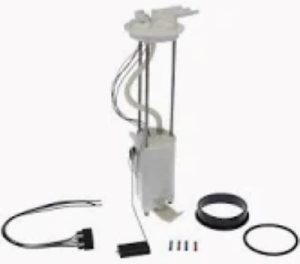Now, engine knock caused by a failing fuel pump is possible since an untreated pump will gradually transmit less and less fuel, simply delivering a deficient amount of gas to the combustion chamber. Engine knock -- often referred to as "pinging" -- happens when the air-fuel mix burns too soon, which is a common problem with a lean fuel condition wherein the engine gets less fuel than it requires to match the air being drawn in. Fuel pressure falling (due to fuel supply not supplying sufficient flow), pulls the mixture in a different direction (richer) with more injurious knock. Fuel delivery issues can be more subtle, even a 10 percent drop in fuel pressure can substantially alter the combustion dynamics, making it more prone to knock under load or especially under acceleration.
For high-performance engines, accurate fuel pressure regulation is critical. A weak fuel pump causes fluctuation in fuel delivery, which results in knocking, reducing the efficiency of the engine and the life span of the engine parts. Knock also places more strain on the engine pistons as well as the cylinder walls, causing them to wear out faster. Research has shown that engines subjected to ongoing knocking can have critical components deteriorate up to 15% quicker compared to those running on the correct fuel grade, potentially affecting longevity and performance.
A high demand or high performance fuel pump can deliver enough fuel to all cylinders to keep knock at bay by maintaining consistent fuel flow at elevated RPMs. When it comes to performance brands such as Walbro and Bosch, these pumps are engineered to provide a significantly greater flow rate, sometimes beyond 300 liters per hour, designed primarily for an engine that needs a consistent fuel supply under duress. Because lean conditions generate hot spots in the combustion chamber that induce premature ignition, a pump that can't keep up with the engine's fuel demand can cause problems.

The heat is another connection between the fuel pumps and the engine knock. If a fuel pump is working inefficiently or has too much resistance, it will create heat. This heat can help vaporize fuel in the lines and exacerbate disruption in fuel flow, leading to a lean mix. Low-trim engines are the most vulnerable; below a quarter tank, pump cooling ability is capped, resulting temperatures can climb 20-30%, upping knock potential.
The fuel pump also gets affected by the voltage instability in the electrical system. Voltage between the pump and the various controllers, especially the fuel pump control module, falls short and as a result, the pump can under-deliver, which leads to inconsistent fuel pressure. Studies have shown the voltage drops of even 5% can drop pump efficiency at big as 20%, which may set the stage for knock when the engine has to do without proper fuel.
Keeping your Fuel Pump in working order and ensuring your car has enough fuel are two easy steps you can take to avoid engine knock and keep your engine in the best shape possible to perform. Keeping an eye on the fuel pump and replacing it when it needs to be replaced, as well as the filters, can help mitigate risks with a lean fuel condition and keep that all-important air-fuel ratio in check, which is important for the life of the engine.